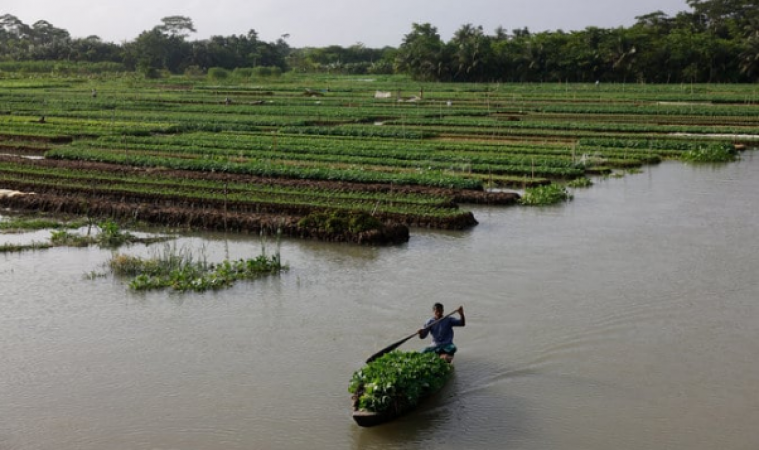
Dhaka: Bangladesh is relying more on Middle Eastern countries to meet its urea demand as a gas crisis tightens local supplies and raises concerns about food security in the South Asian nation, according to a state agency official. .
Bangladesh, with a population of about 166 million people and an agricultural sector that last year accounted for more than 11 percent of its GDP, needs about 2.6 million tonnes of urea, a chemical widely used in food crops.
As local gas fields struggled to meet rising demand amid a global spike in energy prices triggered by Moscow's invasion of Ukraine, fertilizer companies in Bangladesh were either closed or forced to cut production. resulting in dwindling supply of urea.
Also Read: Democratic Republic of the Congo will hold presidential elections in December 2023
To fill the supply gap, the Bangladeshi government is importing more fertilizers from Middle Eastern countries.
“We can say that due to the gas supply crisis in the local market, our fertilizer imports from Middle Eastern countries have increased by about 15%,” Kazi Mohammad Saiful Islam, a director at the state-run Bangladesh Chemical Industries Corp, told Arab.
Also Read: Taiwan's president resigns as party leader following election defeat
He said more than 1.1 million tonnes of urea had been imported from three countries - Saudi Arabia, the United Arab Emirates and Qatar - with plans to increase that amount later this year.
"Given the current global situation, we have already confirmed the willingness of the concerned countries to buy this additional amount," Islam said.
He said Bangladesh normally imports about a quarter of its urea needs, but the price per tonne has more than doubled since the start of Ukraine's invasion in February.
The global fertilizer market has become extremely volatile as a result of the ongoing Ukraine-Russia conflict,” agricultural economist and researcher Dr. Jahangir Alam told Arab News.
Due to its dwindling foreign exchange reserves, he suggested that Bangladesh consider setting up a long-term contract with its foreign suppliers to buy urea "at a lower price" and "proceed the purchase of urea on credit basis".
Also Read: UN foresees that 500,000 more South Sudanese will require humanitarian assistance
According to Alam, former vice-chancellor of Global Village University in southern Bangladesh, Dhaka should also focus on increasing local fertilizer production.
“It is much cheaper for us to produce urea locally.” As a result, the authorities should try to increase the country's production capacity."